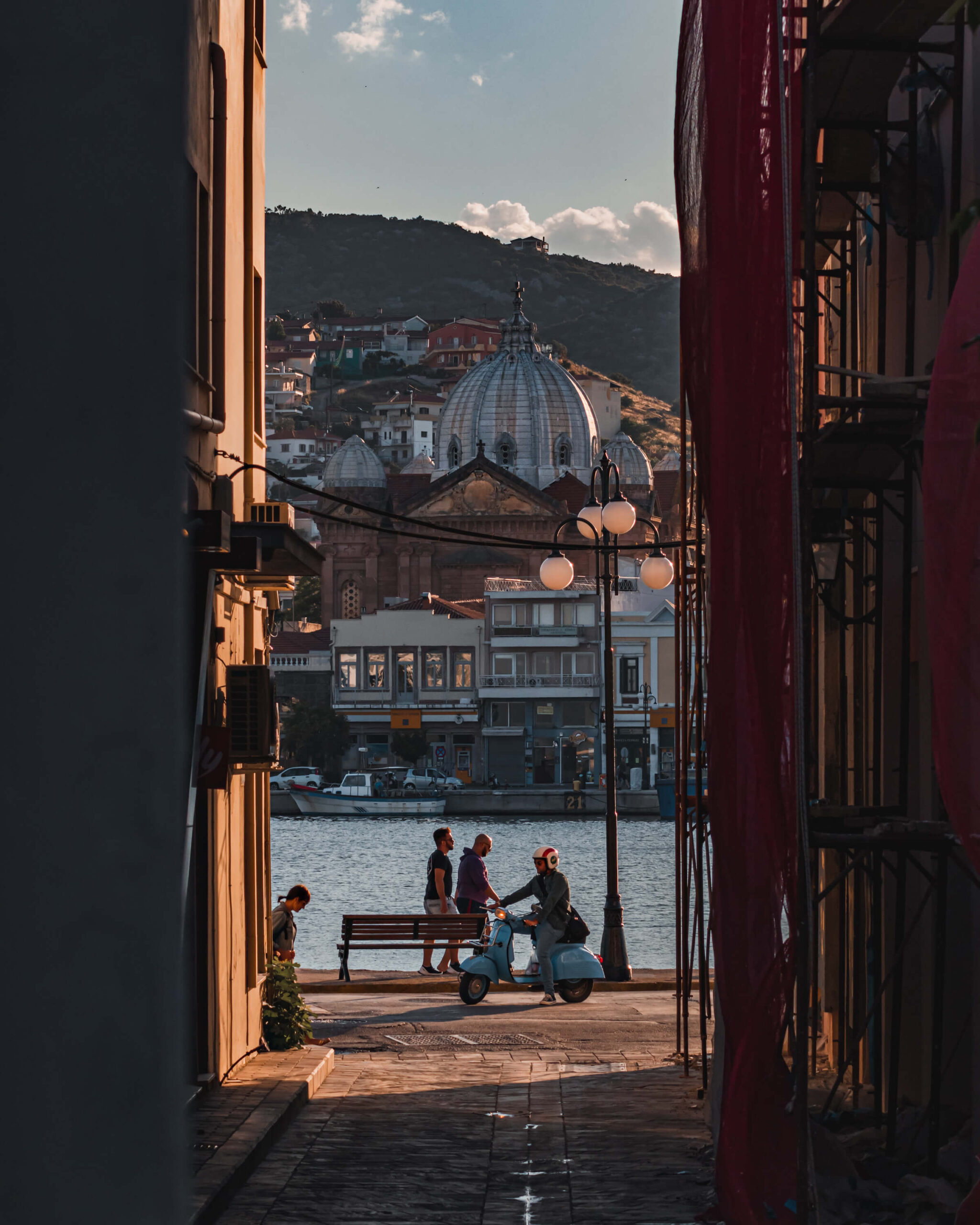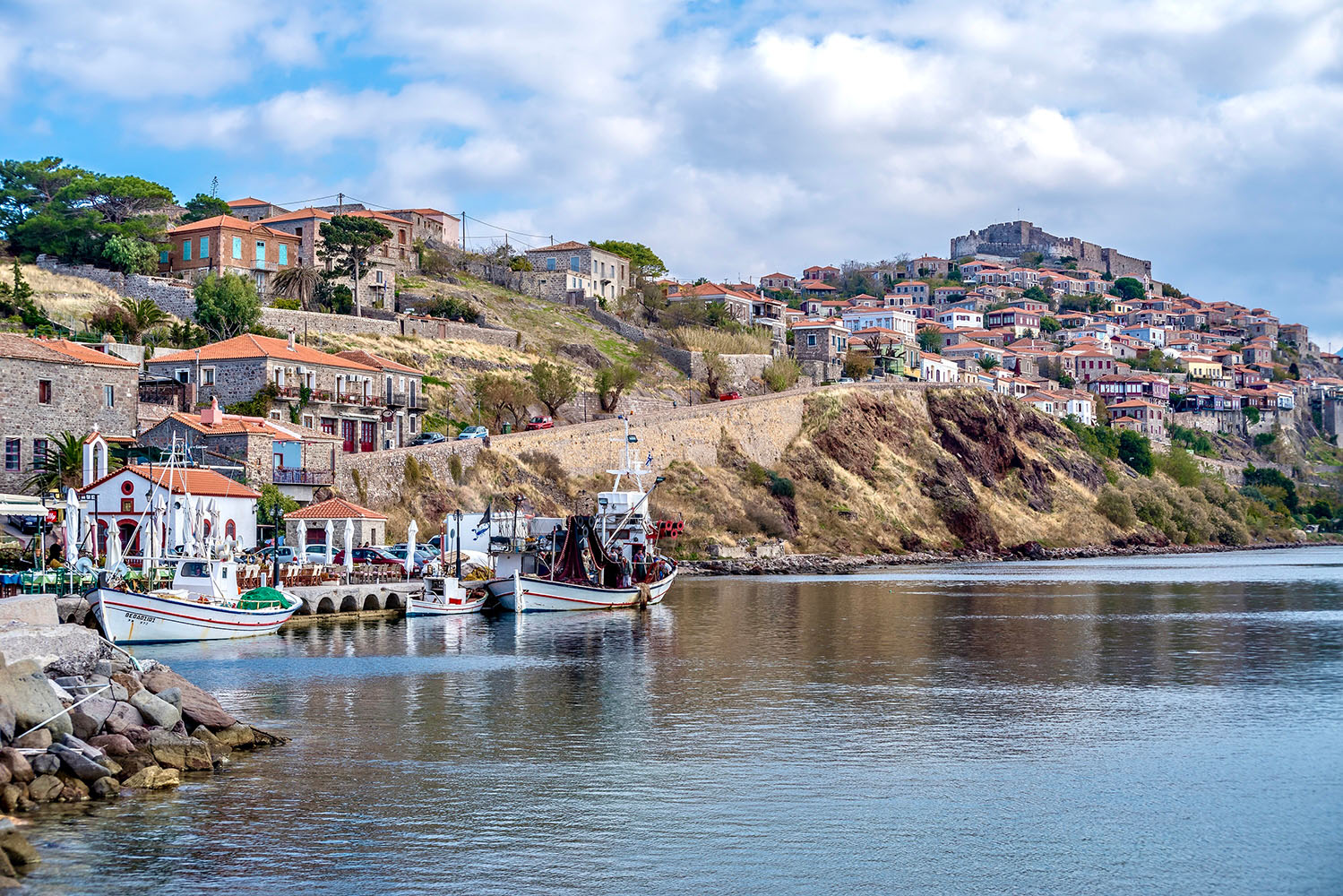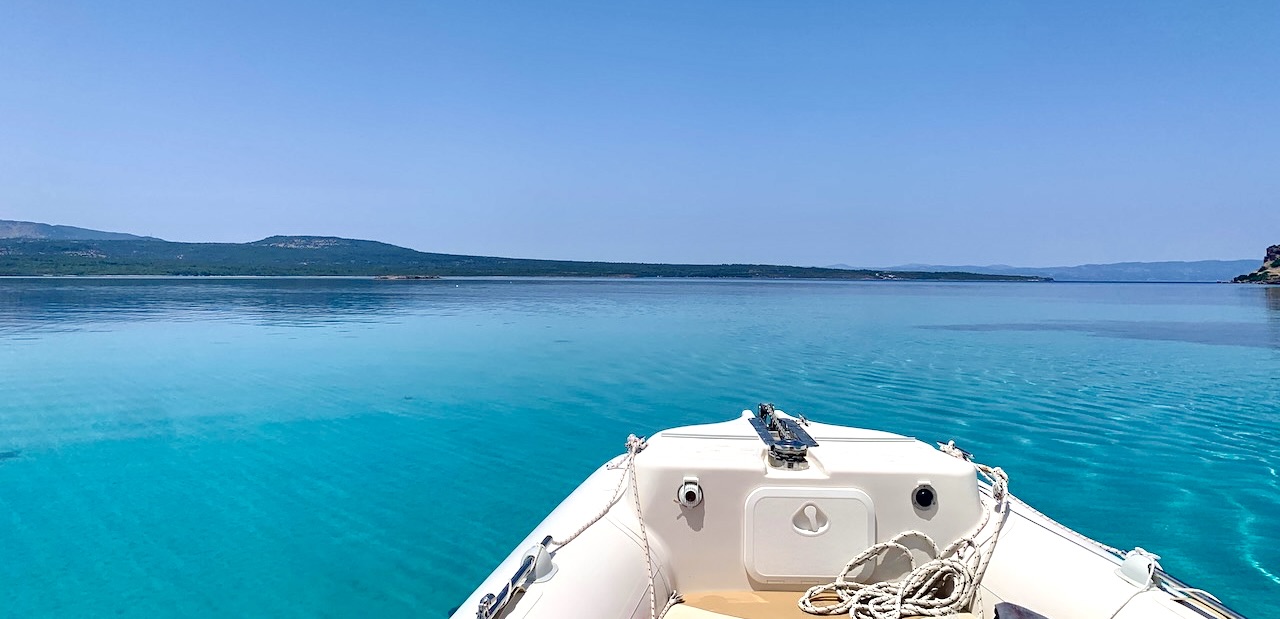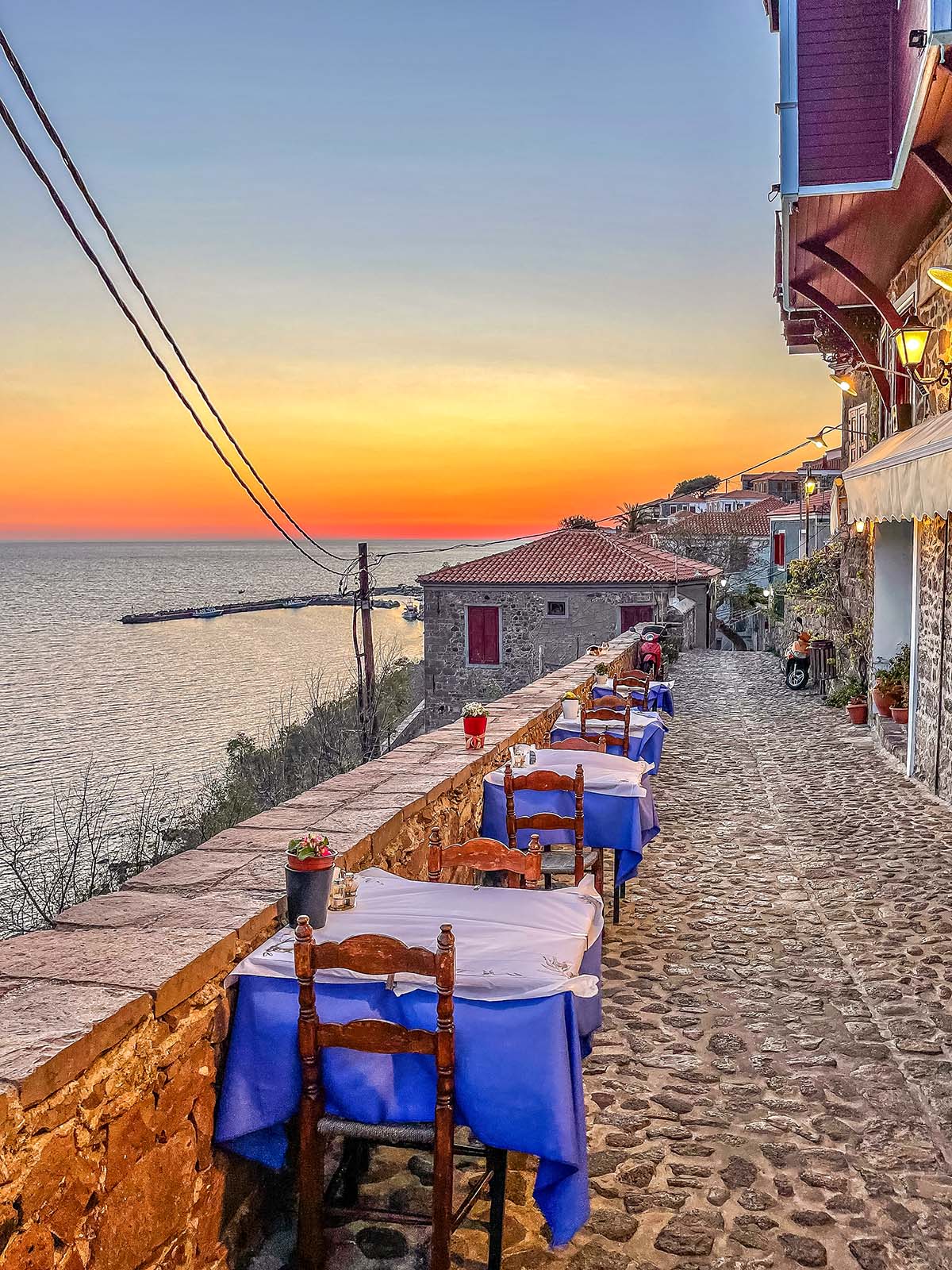Discover Lesvos: A Concise History of The Island & Its People
Lesvos is one of the largest islands in Greece, situated in the Northern Aegean Sea, just off the coast of Turkey. Full of Greek culture and Greek history, this slice of heaven is the ideal sun-soaked holiday destination. More than that, this island is known for being one of the quieter and more authentic Greek islands, complete with olive groves, mountainous landscapes, and a selection of breath-taking beaches. In this article, we will be exploring the history behind Lesvos, delving into the mythological Greek roots of Lesvos, the poetic geniuses that have walked along its beaches, and discuss some of the most well-known landmarks to add to your ‘must-see’ list.
Lesvos In Greek Mythology
Mythology is brimming with tall tales about magic and superhuman powers, a lot of which took place in Greece. From stories about Zeus’ rage, Achilles' battles, and the goddess of love, Athena, Mythology is a gem in the historical background of Greece and the island of Lesvos is no exception.
Dating back, this beautiful island went by many prehistoric names such as Imerti (translating to ‘longed for’), Lassia (densely forested), and Antiope (sun-drenched island). The name of the island that we know so well today was from the mythical originator Lesvos.
Lesvos happened upon the island with Lapithes from Thessaly and eventually married Mythimna, who was the daughter of the settler, Macareus. During his reported reign, five historic towns were built: Mytilini, Issa, Antissa, Mithymna, and Arisvi, taking on the names of his five daughters.
But, did you also know that the island of Lesvos was mentioned amongst the Homeric epics? Derived from Greek mythology, during the years of the epic Trojan War, Odysseus fought and defeated King Philomileidis, leading Achilles to attack the island several times.
Amongst one of his many invasions along the south coast, he captured the breath-taking Brysiida. Agamemnon saw this as a challenge and ended up taking Brysiida from Achillies, which of course, put him into an unmatched rage. During Agamemnon and Achillies' battles over the beautiful Brysiida, it was said that Agamemnon offered up many women on the island of Lesvos that surpassed Brysiida’s beauty to appease Achillies.
The Poetry & Art Of Lesvos
Lesvos was home to a handful of incredible poets, including Sappho who will always have historic ties to the island. This talented Greek poet was known for her lyrical poetry, which typically was written and sung accompanied by some form of music. Born in the Eressos, a village on the island of Lesvos, Sappho’s work was described as ground-breaking, and word of her unique talents was spread across the world. To this day, Sappho is widely considered one of the greatest lyrical poets of all time and is often given the name, the ‘Tenth Muse’. There is a beautiful statue erected in her honour in the square at Eressos, which is well worth a visit.
Another poet that resided on the island is the Terpander, living in Antissa, located near Cape Sigrium, which is at the western point of Lesvos. Terpander rapidly got the name ‘Father of Greek Music’ through his lyrical poetry and poetic compositions. Whilst his rhythms were thought of as simple, he was able to remodify how everyone thought about modes of singing, incorporating other neighbouring countries and islands.
Finally, Odysseus Elytis, another famous Greek poet, was also descended from Lesvos. With family on the island, Elytis won the Nobel Laureate prize in 1979 and continued his work until 1996. He was known for his Greek poetry, being an amazing essayist and translator, as well as being a major advocate of romantic modernism in Greece and of course, around the world.
The Most Memorable Lesvos Landmarks
Lesvos is steeped in both Greek history and Greek culture, which is reflected in the spectacular amount of landmarks that the island possesses. The Byzantine castle of Molyvos, was built on an ancient acropolis. During the Roman era, parts of this landmark were destroyed, whilst some of the lower sections were modified during the Ottoman occupation - this architectural masterpiece has truly been evolving over many centuries, to be the now breath-taking structure it is today.
Whilst you explore this integral piece of Greek history, you will also be treated to an extraordinary view of the Aegean Sea, with its crystal blue waters. If you want to immerse yourself in the old days of Greece, we highly recommend you visit.
If Greek mythology piqued your interest before, there are plenty of sights that are part of these exciting stories, including the Temple of Aphrodite at Mesa. One of the oldest archaeological sites of Lesvos, the temple of Aphrodite is a peaceful space where people come to worship the goddess of beauty and love. You will be treated to tranquil grounds, absent of noise as you are encouraged to simply switch off and meditate for an hour or two.
In 168 BCE, Lesvos was occupied by the Romans, who made their mark on the island by destroying Antissa, one of the mountain villages on the island. Lesvos, despite a few brief political disputes, remained ruled by the Byzantine Empire until it fell to the Ottomans in 1462 CE. Due to this rich history, there is a diverse amount of architecture to be seen on the island, including the Ottoman baths, the Yeni Mosque, folklore exhibitions, and many art demonstrations.
Visit Lesvos
Discover Lesvos' history and culture by booking a holiday with Real Lesvos. Get in touch and we can help plan your stay.













